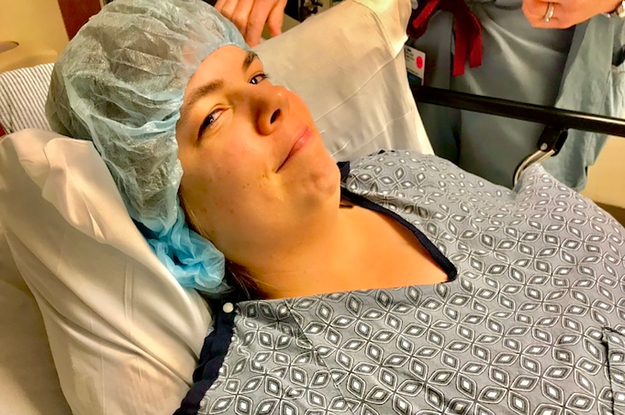
Ultimately, my decision came down to several factors:
1. I wasn’t sure I was mentally, emotionally, physically, or financially capable of being responsible for another human in the way every child deserves.
2. I have ADHD and depend on daily stimulant medication to function, but I would have to go off those meds if I ever got pregnant.
3. I was absolutely terrified of the physical and mental tolls of pregnancy.
4. Being on the pill made me debilitatingly depressed and anxious, and IUDs came with too many negative side effects to be worth it. (My experience is not universal, and both the pill and IUDs are terrific forms of birth control for many people!)
The OB-GYN practice that prescribed my birth control pills and inserted my IUD had only one surgeon on staff, and he was an old white man very close to retirement. When I met with him to request a tubal ligation, I was 21. After listening to all my reasoning, he told me he wasn’t comfortable performing a tubal ligation on someone so young.
I’ll never forget how laughably cliche all his talking points were:
—”You’re too young to know if you really want kids or not.” I doubt he says that to his patients who want to get pregnant.
—”What if you regret the decision?” I’d rather regret not having kids than regret bringing a child into the world that I’m not prepared to care for.
—”There are less permanent birth control options available to you.” I’ve tried them, and they made my life a living hell.
—”What if your future husband wants kids?” I would never marry someone who wasn’t on the same page as me about having kids.
—”A lot of women actually find that their preexisting health problems improve during pregnancy.” A lot of people find pregnancy miserable or even life-threatening; I’m not willing to risk it.
It didn’t matter how sure I was of my decision — the doctor refused to perform the procedure, and that was that.
One thing about me that is both a blessing and a curse is that I can be very, very persistent to the point of obnoxiousness. And in the years since I first requested a tubal ligation, I learned how to advocate for myself within the medical system.
Part of my success is just my entirely too intense personality, but here are a few tips and tricks I learned along the way:
—Always go in with a list of talking points and concerns, and take notes on what your doctor says.
—Be polite but firm. If a doctor shoots you down or dismisses your concerns, don’t be afraid to keep bringing them up. A common phrase that works for a lot of people is, “Would you please mark in my chart that you refused to [order a test/refer me to a specialist/investigate my concern further/etc.].”
—Do research ahead of time. Look for information from valid sources (like medical studies or government websites). Don’t be afraid to read anecdotes on Reddit or other forums from people who have similar health issues, but don’t rely exclusively on anecdotes.
—Think of your doctor as your partner on a group project. They might be frustrating to work with, and they don’t know your body as well as you do, but they will have invaluable experience and knowledge that you shouldn’t ignore.
—If all else fails, don’t be afraid to get a second opinion or switch doctors/medical practices. You owe no loyalty to someone who doesn’t have your best interests at heart.
So, before my OB-GYN appointment, I researched sterilization. I read articles and studies, joined online support groups, and even wrote a paper for my Sexuality, Gender, and the Law class on the legal history of reproductive autonomy and sterilization in the US.
This research confirmed my suspicion that there is a demonstrable discrepancy between the length and ease of processes for people requesting vasectomies versus tubal ligations. Despite both procedures being reversible, people who request vasectomies face far fewer legal, cultural, religious, economic, and medical barriers than people requesting tubal ligations.
I also discovered an official recommendation by the American College of Obstetricians and Gynecologists regarding permanent sterilization: “Respect for an individual woman’s reproductive autonomy should be the primary concern guiding sterilization provision and policy.”

